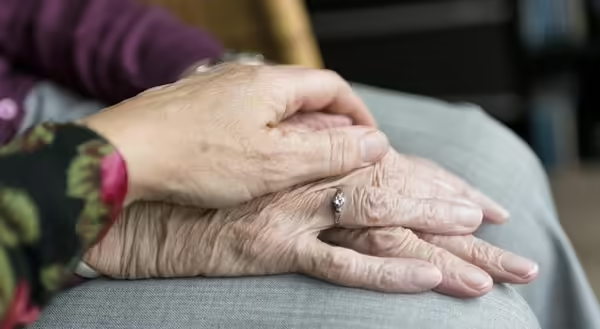
Many things affect sibling relationships when caring for a parent:
- Do all the siblings want the same thing for the parent?
- What do past relationships look like?
- How should care be divided?
- What kind of care is needed?
- Who provides amount/type of care among siblings?
- Where will the parent live if they cannot live alone?
- Who pays for care?
- Are there long-standing personality conflicts?
Conflicts can cause a lot of resentment, frustration, or anger. These feelings often arise from one caregiver feeling “stuck with” all the work or feeling they have no support - physical; emotional; and/or monetary. Let go of the negative feelings can be helpful for your own well-being. Remember, you cannot control how other people act but you can control how you feel.
When siblings collaborate, it positively affects their spirits and helps reduce the feelings of stress caused by caregiving. Sharing the care of a parent is both beneficial to you as well as your relationship with your siblings. Dividing care can make you feel less overwhelmed and more in control of the situation. Others may feel less in control because they can’t direct how the care is given.
Working together benefits sibling relationships. You have each other and that provides comfort through difficult times. You build a bond which often carries through your own old age.
Working together involves good communication skills and having a team care approach. Good communication skills are very important as the demands of caregiving increase. Listen to each other and don’t assume you know what is going to be said.
Working collaboratively can be a process but works when the family makes a plan. Sometimes plans are reactive based on a situation or proactive to prepare for the future. Involve the parent in decision-making as long as they are able to communicate. Make sure they share their wishes in front of all the siblings so there is no misunderstanding. Caregiving is a process and as the plan moves forward it can always be re-evaluated and altered for the best situation.
You cannot force a sibling to be a caregiver however, you can ask them for help. When asking for help be specific about what type of help you need. Some people do better if they are told exactly what needs to be done versus waiting for them to offer help. Research shows that siblings that enjoy each other’s company tend to collaborate better. The most important piece is to find balance so no one sibling has to take on all of the stress. Even if they don’t admit they need help, help should always be offered to decrease their burden.
Collaboration works when siblings split the care on whatever way they feel works for their family situation. Some families split care based on times of the day, set days of the week, or even months at a time. Others split care based on their strengths or availability. Using this method, caregiving may not be “evenly” split but everyone is using their expertise for the best of the family unit. Compromising is key.
Distance caregivers can also contribute by offering moral support and to be a sounding board when the primary caregiver needs someone to vent to about the daily challenges of caregiving. They can also provide respite for the primary caregiver to give them time away to do something they want.
Supportive efforts by siblings will result in better care for the parent. Relationships are never perfect, but families are resilient and remember everyone needs a little slack sometimes.
For additional caregiving resources
Source: Siblings: Working Together for Parent Care. Caregiving Relationships: For People Who Care for Adults Tip Sheets.